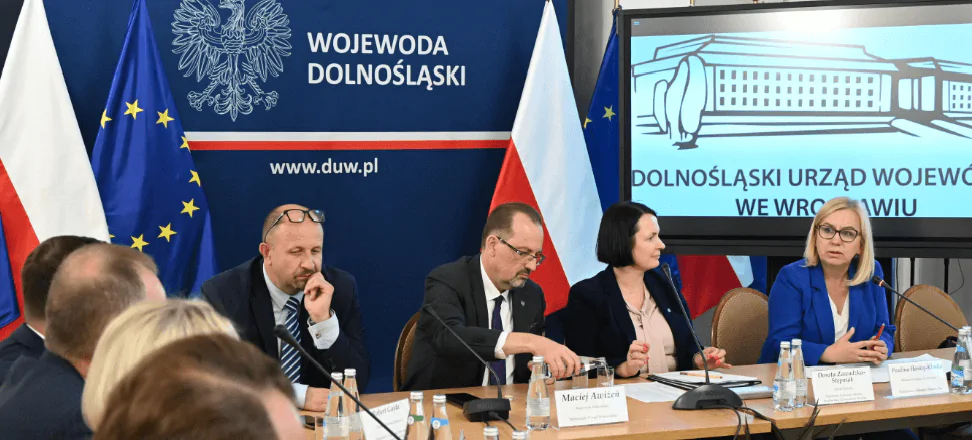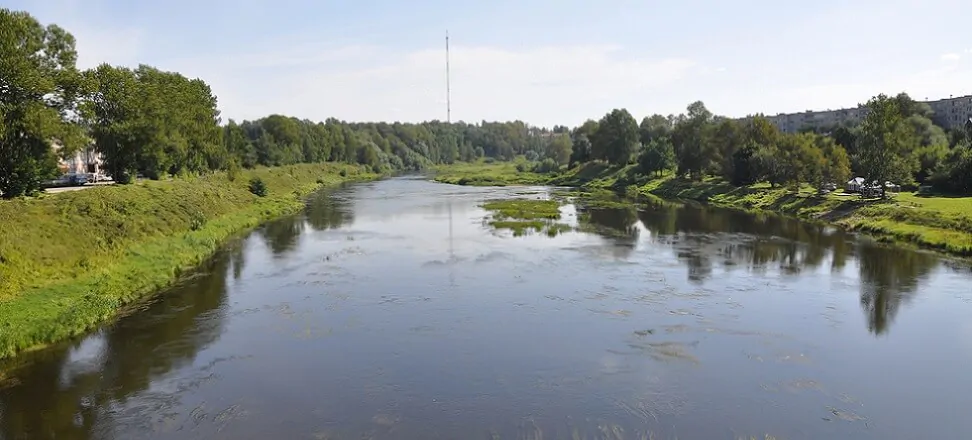Issue 13/2024, News
New Strategy for the Oder River. Investments worth more than PLN 7 billion
Will the Oder River, afflicted with many environmental problems, live to see systemic remediation efforts? The Ministry of Climate and Environment (MoE) and the National Fund for Environmental Protection and Water Management (NFOŚiGW) plan to invest more than PLN 7 billion in various projects related to the protection of its catchment areas.
During a meeting in Wroclaw, attended by Minister Paulina Hennig-Kloska and representatives of administrations from the five provinces crossed by the river, an ambitious plan was launched to improve the ecological state of the Oder River. It’s time to move from crisis management, which I found in the Ministry of the Environment, to solving a systemic problem, Minister Paulina Hennig-Kloska stressed.
Need for a new strategy
Environmental disaster on the Oder River in 2022. provides a strong impetus to take action to protect the river from further threats and restore its ecosystem. A significant problem is the increase in water salinity, which affects aquatic flora and fauna, inhibiting the development of many species of fish and other aquatic organisms, which contributes to a decrease in biodiversity.
The high salinity of the Oder River’s waters is primarily the result of anthropogenic activities, including industrial discharges and surface runoff from agricultural areas, which introduce toxic substances into the river, leading to habitat degradation and negative changes in the composition and structure of ichthyofauna. In addition, excess nutrients, such as nitrogen and phosphorus, cause eutrophication of Oder waters. This process stimulates excessive growth of algae and cyanobacteria, which can result in water blooms, leading to oxygen deficiency and death of aquatic organisms.
Understanding and addressing these risks requires a holistic approach that includes both local and national water management strategies. This requires the involvement of both scientists and policymakers to develop and implement effective methods to protect the river itself, as well as the Oder River basin.
The July 9 meeting in Wroclaw initiated work on responding to key environmental challenges. During the two-hour conference, participants debated the introduction of new regulations. They also discussed ways to finance corrective measures and investments in modern technologies for monitoring and improving water quality.

Planned multi-faceted approach to protection
One of the key elements of the strategy is to be cooperation between different institutions and regions. Representatives of the National Environmental Protection and Water Management Fund and the riverside provincial environmental protection and water management funds pledged close cooperation to coordinate activities and exchange knowledge and experience. As conveyed at the meeting – thanks to such coordination, it will be possible to implement planned projects more effectively and respond more quickly to possible environmental crises.
Another important aspect of the approach presented, is to conduct research and monitor the state of the river. The Ministry of the Environment plans to increase spending on scientific research to help understand the causes of the Oder’s ecological problems and develop effective methods to counter them. The third area, considered essential, will be the retrofitting of services in terms of ongoing interventions, monitoring the river, even before the completion of measures to permanently improve its quality through systemic pollution reduction.
We now need ongoing monitoring, and sometimes intervention, so that we can keep the Oder River in good shape, and so that we can effectively counter and respond in moments of danger,” said Minister Paulina Hennig-Kloska. The above goals should be well thought out, a long-term strategy for the care of the Oder should be developed, and then consistently implemented. Especially since our predecessors have left empty drawers when it comes to any strategic solutions! It is also true that over the past two years, since the 2022 disaster, not much has changed in terms of improving the quality of the Oder ecosystem, and this is something that should now be worked on intensively and consistently. Even more so, in terms of climatic and hydrological conditions. Meteorologists predict a hot summer, with high temperatures and low rainfall, high sunshine. And these are the very factors that negatively affect the Oder River.
New strategy for Oder by end of September
Dorota Zawadzka-Stępniak, President of the National Environmental Protection and Water Management Fund, also participated in the Wroclaw conference. During the meeting, she stressed the importance of cooperation with the boards of the five provincial funds, referred to as the Oder funds, and pledged support for a long-term strategy to protect the Oder River. She noted that work is underway on a strategy for the next four years, which is expected to be completed by the end of September this year. The head of the National Environmental Protection Fund indicated that the strategies will be developed jointly with social, public and NGO stakeholders.

 Polski
Polski







